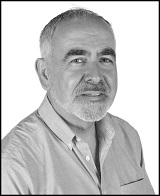 Asked to do a column on medical education for an Irish newspaper, I was struck by how little professional debate we have had on the extraordinary increase in student intakes in these islands. Traditionally Ireland has had a large number of medical schools proportionate to its population: recent presentations in the Royal Colleges of Physicians and the Royal College of Surgeons 2016 of Ireland on the centenary of the 1916 rebellion revealed that Irish graduates represented a substantial proportion of the doctors in the Royal Army Medical Corps of the British Army during the First World War.
Asked to do a column on medical education for an Irish newspaper, I was struck by how little professional debate we have had on the extraordinary increase in student intakes in these islands. Traditionally Ireland has had a large number of medical schools proportionate to its population: recent presentations in the Royal Colleges of Physicians and the Royal College of Surgeons 2016 of Ireland on the centenary of the 1916 rebellion revealed that Irish graduates represented a substantial proportion of the doctors in the Royal Army Medical Corps of the British Army during the First World War.
Changes in medical education often feature in the Irish media, such as the introduction of a meaningless and distracting entry examination, or the growing realization of the high cost of graduate entry medical school.
Less noted, until the recent coverage of a shortage of intern places, has been the huge increase in numbers admitted to medical schools at a time of radical change in our health system. Just as in the UK, this massive expansion has been motivated to a large extent as a revenue-raising exercise through fees from non-EU students or postgraduate entry in a cash-strapped university system.
There has been relatively little discussion on how this impacts on the nature of medical education, despite the magnitude of the changes that have occurred over thirty years. My own class size was sixty-five, distributed across eight small hospitals. The intensity of patient care was significantly less: patients were less sick, with in-patient stays often for many days for procedures such as hernias and gall bladders which are now mostly managed as day cases.
The low numbers of students, the relatively lower acuity of patients and attachment to a specific hospital also provided a network of support and supervision which facilitated pastoral care of the students from trainees and consultants alike.
The current state is a complete contrast, in effect a perfect storm. The number of medical students has expanded exponentially in existing undergraduate—more than tripling in my own university—and new graduate-entry programmes; the numbers of hospitals and hospital beds has dropped markedly; and patients are more sick, more intensively treated, and remain for shorter periods in hospital. In addition, implementation of the European working directive has reduced availability of trainees and consultants, and students may no longer be allocated to individual hospitals.
Such seismic changes require a radical revision of how medical education, in the main provided by doctors and trainees who are full-time clinical employees, is delivered, and demands substantially better integration, communication, discussion, and feedback mechanisms than have been the norm up to now. It also requires an overview of whether the clinical settings provide an adequate spectrum of the clinical conditions that future doctors will see in practice.
While some of the medical schools have made progress in this regard, this is not universally the case, and medical students may neither be fully aware of, nor empowered to react to, deficits in the breadth and depth of their medical education. In addition, monitoring distress and provision of pastoral care for students in difficulty is much more challenging.
It is therefore of vital importance that Irish and UK medical councils, some of whose members also represent medical schools which have dramatically expanded intake, take a clear-eyed and firm position on how well medical schools have upped their game and dedicated the extra revenue and energies to teaching. If necessary they should not draw back from imposing sanctions or reducing student intake, if indicated, to preserve an appropriate educational framework.
In this, the regulatory bodies should perhaps adapt the epigram of the celebrated physician, William Osler, that: “He who studies medicine without books sails an uncharted sea, but he who studies medicine without adequate access to patients does not go to sea at all.”
Desmond O’Neill is a geriatrician and an educator on the TCD Massive Open Online Course on ageing.
